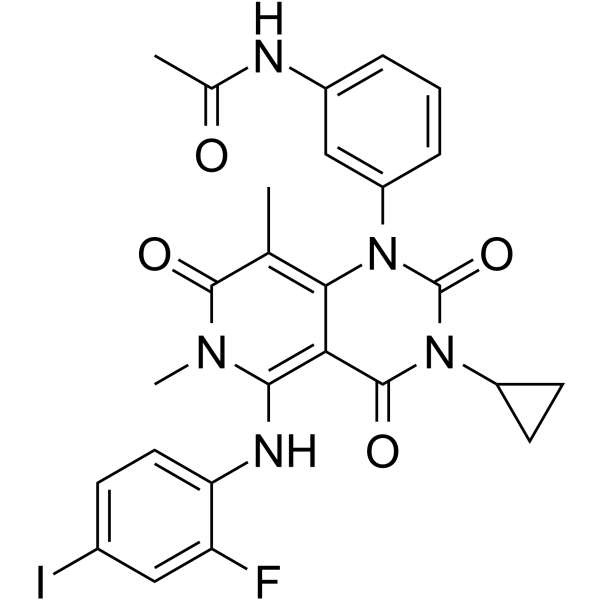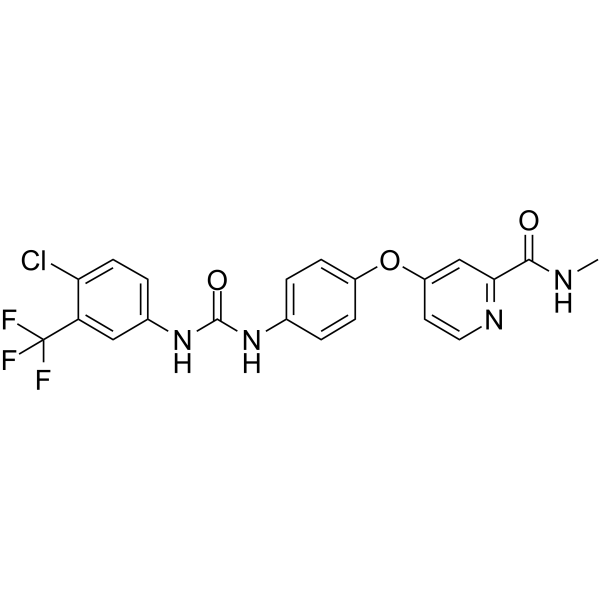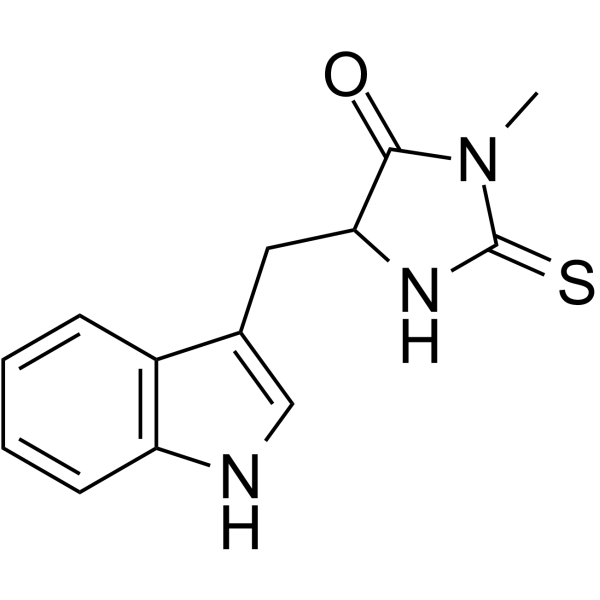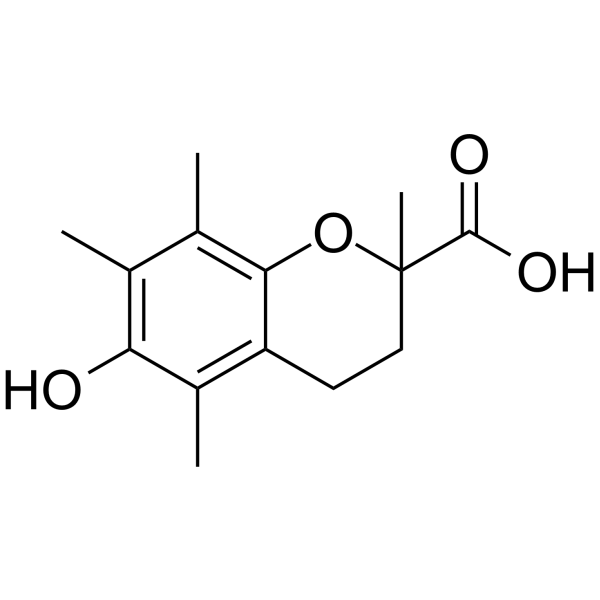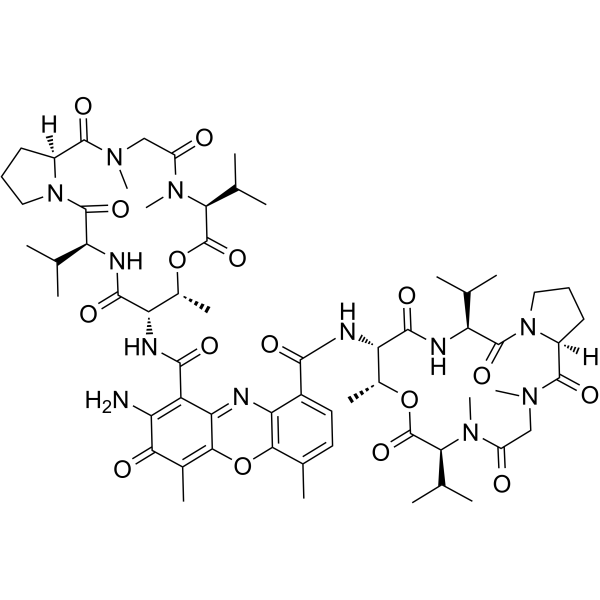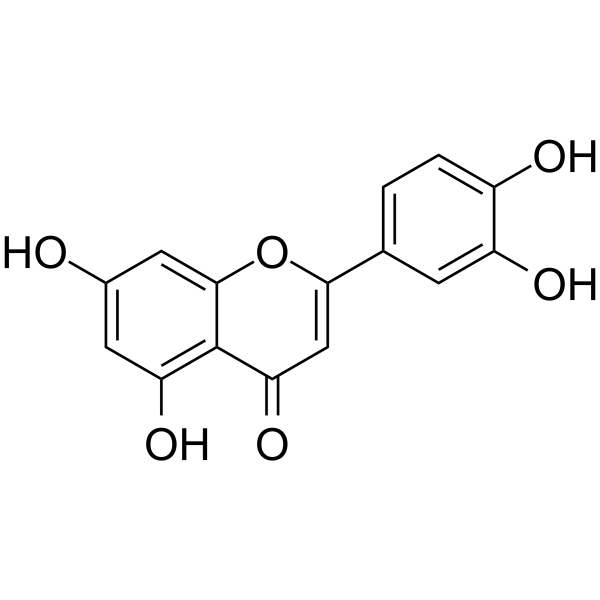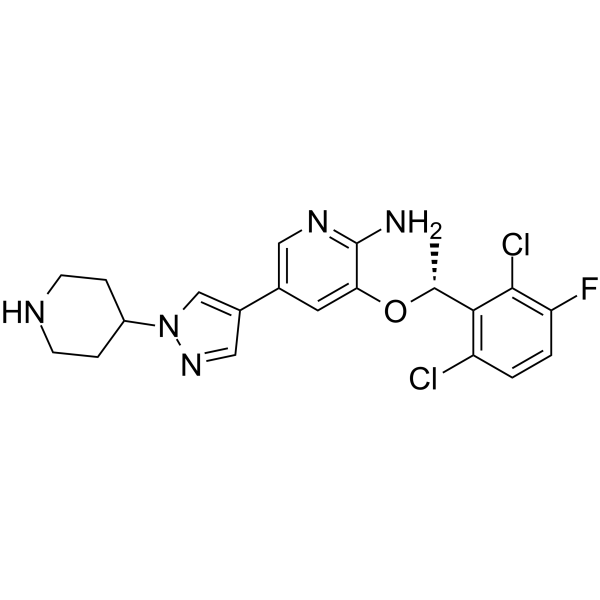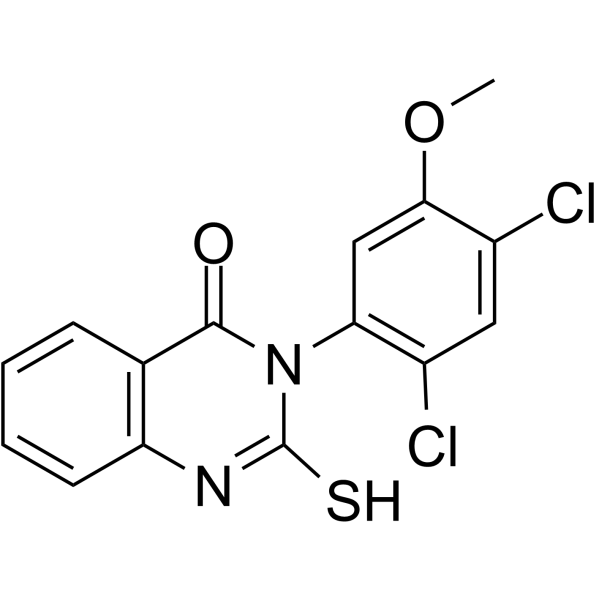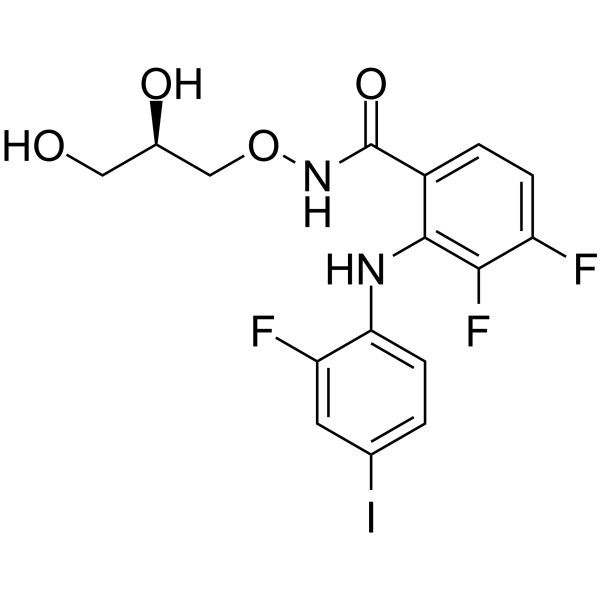|
BP12918
|
BRD5631
|
|
|
|
|
BRD5631 is an autophagy enhancer through an mTOR-independent pathway. It affects several cellular disease phenotypes linked to autophagy, including cell survival, protein aggregation, and inflammatory cytokine production.
|
|
BP12919
|
Calcineurin substrate acetate
|
|
|
|
|
Calcineurin substrate acetate is from the regulatory RII subunit of cAMP-dependent protein kinase.
|
|
BP12920
|
Corynoxine hydrochloride(6877-32-3(free base))
|
|
|
|
|
Corynoxine is a natural oxindole alkaloid and induces autophagy in different neuronal cell lines, including N2a and SHSY-5Y cells.
|
|
BP12921
|
CTCE 9908 acetate
|
|
|
|
|
CTCE 9908 acetate is an antagonist of CXCR4 and inhibits migration in CXCR4-expressing ovarian cancer cells.
|
|
BP12922
|
FC131 TFA (606968-52-9 free base)
|
|
|
|
|
FC131 TFA is an antagonist of CXCR4 that inhibits the binding of [125I] -sdf-1 to CXCR4(IC50 : 4.5 nM ), and has anti-hiv activity.
|
|
BP12923
|
LY2510924 acetate(1088715-84-7 free base)
|
|
|
|
|
Ly2510924 acetate is an potent and selective CXCR4 antagonist. It prevents the binding of SDF-1 to CXCR4 with an IC50 of 0.079 nM.
|
|
BP12924
|
Motixafortide TFA(664334-36-5,Free)
|
|
|
|
|
Motixafortide is an antagonist of CXCR4 with IC50 of ~1 nM. It induces the apoptosis of AML blasts by down-regulating ERK, BCL-2, MCL-1 and cyclin-D1 via altered miR-15a/16-1 expression.
|
|
BP12925
|
MRT67307 HCl (1190378-57-4(free base))
|
|
|
|
|
MRT67307 is a kinase inhibitor of TBK1, MARK1-4, IKKε, and NUAK1 (IC50: 19, 27-52, 160, and 230 nM, respectively).
|
|
BP12926
|
NUCC-390 dihydrochloride (1060524-97-1 free base)
|
|
|
|
|
NUCC-390 dihydrochloride is selective agonist of small-molecule CXCR4 receptor.
|
|
BP12927
|
Tat-beclin 1 acetate
|
|
|
|
|
Tat-beclin 1 acetate is a potent inducer of autophagy and interacts with the negative regulator of autophagy, GAPR-1. Tat-beclin 1 acetate decreases the accumulation of polyglutamine expansion protein aggregates and the replication of several pathogens (including HIV-1).
|
|
BP12928
|
TC14012 acetate
|
|
|
|
|
TC14012 acetate is a serum-stable derivative of T140 which is a selective and peptidomimetic CXCR4 antagonist with an IC50 of 19.3 nM. TC14012 is also a potent CXCR7 agonist with an EC50 of 350 nM for recruiting β-arrestin 2 to CXCR7. TC14012 has anti-cancer activity and anti-HIV activity.
|
|
BP22488
|
Trametinib
|
|
|
|
|
Trametinib (GSK1120212; JTP-74057) is an orally active MEK inhibitor that inhibits MEK1 and MEK2 with IC50s of about 2 nM. Trametinib activates autophagy and induces apoptosis.
|
|
BP22487
|
Sorafenib
|
|
|
|
|
Sorafenib (Bay 43-9006) is a potent and orally active Raf inhibitor with IC50s of 6 nM and 20 nM for Raf-1 and B-Raf, respectively. Sorafenib is a multikinase inhibitor with IC50s of 90 nM, 15 nM, 20 nM, 57 nM and 58 nM for VEGFR2, VEGFR3, PDGFRβ, FLT3 and c-Kit, respectively. Sorafenib induces autophagy and apoptosis. Sorafenib has anti-tumor activity. Sorafenib is a ferroptosis activator.
|
|
BP22489
|
Necrostatin-1
|
|
|
|
|
Necrostatin-1 (Nec-1) is a potent and cross the blood-brain barrier necroptosis inhibitor with an EC50 of 490 nM in Jurkat cells. Necrostatin-1 inhibits RIP1 kinase (EC50=182 nM). Necrostatin-1 is also an IDO inhibitor.
|
|
BP22551
|
Trolox
|
|
|
|
|
Trolox is an analogue of vitamin E with a powerful antioxidant effect. Trolox is also a powerful inhibitor of membrane damage.
|
|
BP22500
|
Actinomycin D
|
|
|
|
|
Actinomycin D (Dactinomycin) inhibits DNA repair with an IC50 of 0.42 μM. Actinomycin D is an autophagy activator.
|
|
BP22530
|
Luteolin
|
|
|
|
|
Luteolin (Luteoline), a flavanoid compound, is a potent Nrf2 inhibitor. Luteolin has anti-inflammatory, anti-cancer properties, including the induction of apoptosis and cell cycle arrest, and the inhibition of metastasis and angiogenesis, in several cancer cell lines, including human non-small lung cancer cells.
|
|
BP22533
|
Crizotinib
|
|
|
|
|
Crizotinib (PF-02341066) is an orally bioavailable, ATP-competitive ALK and c-Met inhibitor with IC50s of 20 and 8 nM, respectively. Crizotinib inhibits tyrosine phosphorylation of NPM-ALK and tyrosine phosphorylation of c-Met with IC50s of 24 and 11 nM in cell-based assays, respectively. Crizotinib is also a ROS1 inhibitor. Crizotinib has effective tumor growth inhibition.
|
|
BP22504
|
Mdivi-1
|
|
|
|
|
Mdivi-1 is a selective dynamin-related protein 1 (Drp1) inhibitor. Mdivi-1 is a mitochondrial division/mitophagy inhibitor.
|
|
BP22525
|
Mirdametinib
|
|
|
|
|
Mirdametinib (PD0325901) is an orally active, selective and non-ATP-competitive MEK inhibitor with an IC50 of 0.33 nM. Mirdametinib exhibits a Kiapp of 1 nM against activated MEK1 and MEK2. Mirdametinib suppresses the expression of p-ERK1/2 and induces apoptosis. Mirdametinib has anti-cancer activity for a broad spectrum of human tumor xenografts.
|


).gif)

.gif)
.gif)
.gif)
).gif)
.gif)


